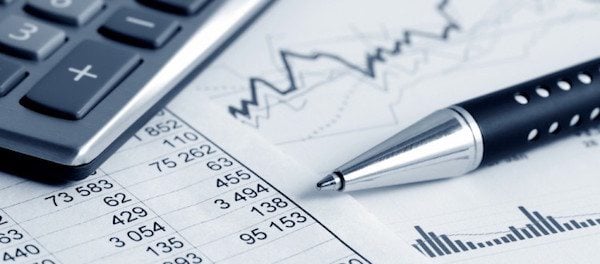
Administrative accounting is about the management or control of money. Latin terms meaning "related to leadership" are what give rise to administrative. Latin terms for accounting stem from the Latin prefix and verb "administrus" that mean "to count". The suffix "-ivo" indicates an active or passive relationship. It is not uncommon to hold more than one administrative post.
Qualifications necessary
A broad range of skills is required for administrative accounting jobs. Besides being responsible for maintaining and creating financial records, accounting administrators must be able to communicate effectively with clients and other administrators. A good understanding of computers is essential as they will be using spreadsheets, word processing and accounting software. In addition, these administrators need to know how to work with the internet and cloud storage.
The qualifications needed for administrative accounting jobs typically include a bachelor's degree in accounting, a minimum of one year of relevant experience, and a solid understanding of financial processes. In addition, they must possess excellent verbal and written communication skills, as well as strong organizational and problem-solving skills.

Job description
Administrative accounting job descriptions should reflect the skills necessary for success. Accounting administrators need to have a strong work ethic and be able to meet tight deadlines. These professionals should have a good understanding of basic accounting concepts and the ability to use multiple computer programs. Therefore, these professionals must have the right soft skills in order to succeed in their fields.
Administrator accountants have the primary responsibility for managing financial transactions within an organization. These individuals produce daily reports that aid the administration and management in monitoring the company’s activities. They are responsible for maintaining the company’s budget. These individuals can also be responsible for reconciling vendor invoices and processing payments.
Training requirements
Administrative accountants are responsible for many functions within an organization. They prepare tax returns and maintain records. They are also often consulted on issues regarding cost reductions, revenue enhancement, and profit maximization. An accounting degree can be a great foundation for your business career. A streamlined Administrative Accounting Specialist Diploma from Sullivan University can help you gain the skills you need to start a rewarding career in accounting.
Administrative accounting is part of managerial accounting. It includes formal processes that collect and analyze financial information. They also assist in corporate budgeting and management planning. In-house administrative accountants handle many tasks, including bookkeeping, payroll, assets, and budgeting. They also assist with accounting tasks such as the preparation of monthly reports and budget preparations.

Salary
Salaries for Administrative Accountants are variable. The average administrative accountant salary in the United States is $101,240 annually. Average hourly wages are $49. These figures are based upon salary surveys by ERI, cost-of-labor data from commercially accessible sources, and effective income taxes rates. Many factors will influence the exact salary for a position such as education, work experience, and location.
Salary for Administrative Accountants is based on skills and experience. The top earners earn between $72,000 and $86,000 per year. The average salary varies by up to $14,000, but it can be as high as $86,500.
FAQ
What is an accountant and why are they so important?
An accountant keeps track of all the money you earn and spend. An accountant also records how much tax you have to pay and the deductions that are allowed.
An accountant can help you manage your finances and keep track of your incomes and expenses.
They assist in the preparation of financial reports for both individuals and businesses.
Accounting professionals are required because they need to be able to understand all aspects of the numbers.
Accountants also assist people with filing taxes to ensure that they are paying as little tax possible.
How can I tell if my company has a need for an accountant?
Companies often hire accountants once they reach certain sizes. A company may need an accountant if it has more than $10 million in annual sales.
Many companies employ accountants regardless of size. These include sole proprietorships, partnerships and corporations.
A company's size doesn't matter. Only what matters is whether or not the company uses accounting software.
If it does, the company will need an accountant. It doesn't if it doesn't.
What's the difference between accounting & bookkeeping?
Accounting refers to the study of financial transactions. These transactions are recorded in bookkeeping.
Both are connected, but they are distinct activities.
Accounting deals primarily in numbers while bookkeeping deals with people.
For reporting purposes on an organization's financial condition, bookkeepers keep financial records.
They ensure that all the books are balanced by correcting entries for accounts payable, accounts receivable or payroll.
Accounting professionals analyze financial statements to assess whether they conform to generally accepted accounting procedures (GAAP).
If not, they may recommend changes to GAAP.
Accounting professionals can use the financial transactions that bookkeepers have kept to analyze them.
What is the distinction between a CPA & Chartered Accountant, and how can you tell?
Chartered accountants are accountants who have passed all the necessary exams to get the designation. Chartered accountants have more experience than CPAs.
Chartered accountants are also qualified to offer tax advice.
It takes 6 to 7 years to complete a chartered accounting course.
What is a Certified Public Accountant and how do they work?
A C.P.A. is a certified public accountant. is a person with specialized knowledge in accounting. He/she has the ability to prepare tax returns, and assist businesses in making sound business decision.
He/She keeps an eye on the company's cash flow, and ensures that everything runs smoothly.
What is the purpose of accounting?
Accounting provides a view of financial performance by measuring and recording transactions, analyzing them, and reporting on them. Accounting allows organizations to make informed decisions about how much money they have available to invest, how much they can expect to earn from operations and whether additional capital is needed.
Accountants keep track of transactions to provide information about financial activities.
The company can then plan its future business strategy, and budget using the data it collects.
It is important that the data you provide be accurate and reliable.
Are accountants paid?
Yes, accountants usually get paid hourly rates.
For complex financial statements, some accountants may charge more.
Sometimes, accountants are hired for specific tasks. An accountant could be hired by a PR firm to prepare a report describing the client's performance.
Statistics
- According to the BLS, accounting and auditing professionals reported a 2020 median annual salary of $73,560, which is nearly double that of the national average earnings for all workers.1 (rasmussen.edu)
- Employment of accountants and auditors is projected to grow four percent through 2029, according to the BLS—a rate of growth that is about average for all occupations nationwide.1 (rasmussen.edu)
- "Durham Technical Community College reported that the most difficult part of their job was not maintaining financial records, which accounted for 50 percent of their time. (kpmgspark.com)
- In fact, a TD Bank survey polled over 500 U.S. small business owners discovered that bookkeeping is their most hated, with the next most hated task falling a whopping 24% behind. (kpmgspark.com)
- a little over 40% of accountants have earned a bachelor's degree. (yourfreecareertest.com)
External Links
How To
Accounting for Small Businesses: How to Do It
Accounting for small businesses should be one of your most important tasks when managing a business. Accounting involves keeping track of income, expenses, creating financial reports and paying taxes. This task also requires the use of software programs, such as Quickbooks Online. You have many options when it comes to accounting for small businesses. You should choose the best way for you according to your needs. We have listed the best options for you below.
-
Use the paper accounting system. If you want to keep things simple, then using paper accounting may work well for you. This method is simple. You just need to keep track of your transactions each day. A QuickBooks Online accounting program is a good option if your records need to be complete and accurate.
-
Use online accounting. Online accounting makes it easy to access your accounts anywhere, anytime. Wave Systems, Freshbooks, Xero, and Freshbooks are just a few of the popular options. These software programs allow you to manage finances, pay bills, generate reports, send invoices, and more. These programs offer many features and benefits. They also make it easy to use. These programs can help you save time and money on accounting.
-
Use cloud accounting. Another option you have is cloud accounting. You can store your data securely on a remote server. Cloud accounting is a better option than traditional accounting systems. It doesn't require you to purchase expensive hardware or software. Because all your information is stored remotely, it provides better security. It saves you the hassle of backing up your data. Fourth, you can share your files with others.
-
Use bookkeeping software. Bookkeeping software works in the same way as cloud accounting. However, you will need to buy a computer to install the software. After you install the software, you'll be able connect to the internet and access your accounts whenever you wish. You can also view your balances and accounts right from your computer.
-
Use spreadsheets. Spreadsheets are used to enter your financial transactions manually. One example is a spreadsheet you can use to track your daily sales. Another benefit of using a spreadsheet is the ability to make changes at will without needing an entire update.
-
Use a cash book. A cashbook records all transactions that you make. Cashbooks come with different sizes and shapes, depending on how many pages you have. You can either use a separate notebook for each month or use a single notebook that spans multiple months.
-
Use a check register. Check registers are a tool that allows you to organize receipts and payment information. To transfer items to your check list, all you have to do is scan them in your scanner. You can then add notes to help remember what you bought later.
-
Use a journal. Journals are a logbook that helps you keep track of your expenses. This is best for those who have recurring expenses like rent, insurance, and utilities.
-
Use a diary. You can simply use a diary to keep track of your life. You can use it to keep track of your spending habits and plan your budget.